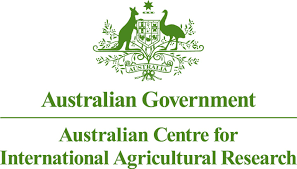The Integrative Research Group (IRG) of the Global Research Alliance on Agricultural Greenhouse Gases (GRA) is hosting its Webinar Meeting “Australian Soil Carbon Offset Methods: the science, the policy and the practice”. Presented by the Australian Centre for International Agricultural Research, the Australian Government Department of Environment and Energy, and the Australian Government Clean Energy Regulator.
When: June 26, 2019, at 9:00 P.M (Canberra UTC+10).
What is this webinar about?
The Australian Emissions Reduction Fund (ERF) is a voluntary scheme that supports Australian businesses, farmers and land managers to take actions to reduce emissions and improve the environment. By running projects to reduce emissions and store carbon, businesses, land managers and others can earn Australian carbon credit units (ACCUs). These units can be sold to the Australian Government through a carbon abatement contract, or to other businesses seeking to offset their emissions. Over 770 projects have been registered under many eligible activities, including energy efficiency, waste management, revegetation, livestock management, savanna fire management and soil carbon sequestration.
Eligible emissions reduction activities are included in ‘methodology determinations’, or ‘methods’ for short. Methods are developed by the government in consultation with industry and technical experts. They set out the rules for estimating carbon abatement from different activities, including in the land sector. These methods ensure that carbon abatement is measurable, verifiable and additional to business as usual operations.
What will you learn?
Join Beverly Henry, Vyt Vilkaitis and Konrad Muller to hear about the soil carbon methods under Australia’s ERF – the development of the underpinning science, the policy framework and the practicalities of the methods.
Beverley, Vyt and Konrad will discuss all this, in the context of the two legislated methods currently approved for soil carbon offsets:
- Estimating sequestration of carbon in soil using default values method (model-based soil carbon)
- Measurement of soil carbon sequestration in agricultural systems method
Speakers:
Beverley Henry – GRA, IRG co-chair, member of the Scientific and Technical Committee of the 4p1000 Initiative.
Through academic and consulting positions, she participates in several Australian and international climate change committees and panels.
Vyt Vilkaitis – Australian Department of the Environment and Energy working on the ERF.
He has worked in government policy for over 10 years focusing on natural resource management.
Konrad Muller – Member of the Australian Government Clean Energy Regulator, ERF Policy Team
He advises on the design, implementation and strategic issues of the ERF. Konrad was formerly in the Australian Government Department of Agriculture with an academic background in agricultural science.
Please register here.
Australia has nominated a new leader to Co-Chair our Integrative Research Group. Professor Richard Eckard will join Canadian Dr Brian McConkey and French Professor Jean-François Soussana.
Richard is Professor of Livestock Production Systems and Director of the Primary Industries Climate Challenges Centre (www.piccc.org.au) at the University of Melbourne, and represents the Australian government through the Australian Centre for International Agricultural Research.
Also co-lead of the Integrative Research Group’s Farm to Regional Network, Richard’s research focuses on sustainable livestock production, nitrogen cycling and loss in grazing systems, with a recent focus on carbon farming and options for livestock production systems to respond to a changing climate. Richard coordinates a research team focused on farm systems analysis, reconciling productivity, adaptation and mitigation, underpinning the development of carbon farming offset methodologies and improved inventory accounting for agricultural emissions.
Australia’s Nitrous Oxide (N2o) Network’s website has updated their website.
The network comprises a growing compendium of resources from Australian and international collaborators regarding N2O and associated non-CO2 emissions from agricultural soils. Following a funding proposal in with the Australian government to expand the network, datasets from their international projects and collaborations are being updated to the site.
The Australian Government has announced the second round of competitive grants funding for the $201 million Filling the Research Gap Program.
Filling the Research Gap is providing eligible Australian organisations with funding to identify and develop new low–cost abatement options for the land sector to reduce greenhouse gas emissions and sequester carbon.
International engagement is an important priority under this round of Filling the Research Gap through the promotion of collaborative efforts between Australian researchers and member countries of the Global Research Alliance on agricultural greenhouse gases.
Australia has already made outstanding contributions to international climate change research through the Climate Change Research Program and projects funded under the first round of Filling the Research Gap are building on these efforts.
For more information visit Filling the Research Gap on the Department of Agriculture, Fisheries and Forestry website at www.daff.gov.au/climatechange/carbonfarmingfutures/ftrg
As demand grows for new means of feeding a global population expected to reach 9.5 billion this century, scientists worry that funding for agricultural research is falling around the world.
Dr Richard Richards of the Australian science agency CSIRO’s plant industry division said scientists from a wide spectrum of disciplines would be needed.”We need to combine advances in genetic technologies with opportunities for better crop management.” Read the full article.


